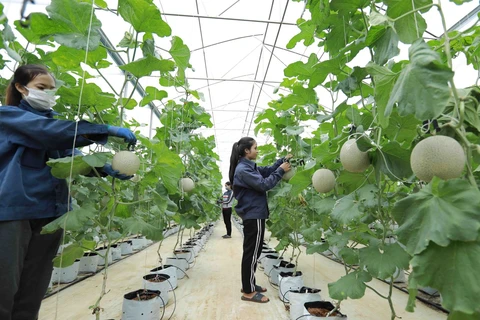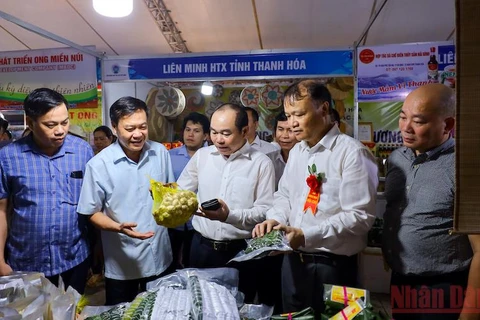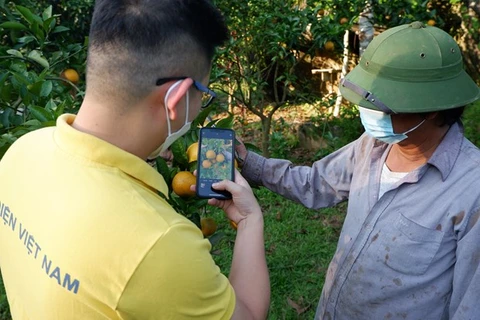 Green Skin Pomelo VietGAP Production Model in Phu Thanh Cooperative Group, Ben Tre Province. (Photo sggp.org.vn)
Green Skin Pomelo VietGAP Production Model in Phu Thanh Cooperative Group, Ben Tre Province. (Photo sggp.org.vn) Dao Van Minh, deputy leader of Phu Thanh Green Skin Pomelo Production Cooperative Group in Ben Tre province's Chau Thanh district, said he and many others formed a cooperative group in 2006 on the advice of local authorities.
The group learnt to adopt large-scale farming and meet VietGAP standards, and received assistance from exporters.
Traders and businesses have been buying the group’s pomelos at an average of 30,000 VND (1.29 USD) per kilogramme, a relatively good price at a time when the economy is recovering from the impacts of COVID-19, he said.
“Because of our correct cultivation methods, our pomelos always meet VietGAP requirements. There were even years when we sold at 50,000-60,000 VND and earned 1 billion VND.”
Dam Van Hung, owner of fruit trader Huong Mien Tay Company, said working with cooperative groups ensures a stable source of produce for export, and farmers too benefit by having regular buyers offering good prices.
Tam Vu cooperative group in Long An province was able to sell its dragon fruits for a good price even when exports to China were affected by the pandemic in 2021.
Vo Chi Thien, Chairman of My Tinh An Dragon Fruit Cooperative Group, said by changing the business model to meet GlobalGAP standards, his group was able to export dragon fruit to markets such as Europe, Australia and the US rather than rely solely on the Chinese market unlike in the past.
The Ben Tre Province Green Skin Pomelo Cooperative Group has received a farming code to ensure traceability for its 110 ha farming zone, which helps it export fruits to Europe and the US.
However, there are some obstacles that the Mekong Delta faces, such as high production costs, lack of large farms and overwhelming reliance on China for exports of certain fruits./.
VNA






















